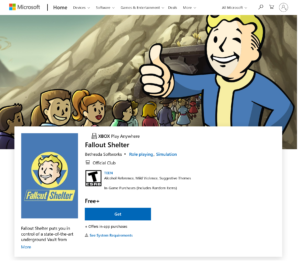 To my surprise, I have discovered that the Christmas events in video games bring me joy. This was unexpected, considering that I haven’t celebrated Christmas in years, and have some really bad memories attached to the holiday.
To my surprise, I have discovered that the Christmas events in video games bring me joy. This was unexpected, considering that I haven’t celebrated Christmas in years, and have some really bad memories attached to the holiday.
One excellent example in-game Christmas events are the ones offered in Animal Crossing: Pocket Camp. Every year, there are new Christmas items (and wearables) that the player can collect just by completing quests. Missed something from a previous year? You can probably pick it up if you have enough of the items that are required in order for you to craft it.
Pocket Camp is a low-stress game. I have filled my campsite with as much Christmas related items as I could stuff into it. The ones with glowing lights are my favorite. This is not something I would want to experience for very long in the real world, though.
Seekers Notes is an app game where the player must find hidden objects in a number of locations. There is always an interesting story to keep the player motivated to finish the quests and discover how the story ends.
The main concept of the game is that the town has been “stuck” with no way to get out. It is an ongoing mystery that the player – who becomes the Seeker – must help the townspeople solve. It has just the right amount of creepy, and that includes the Christmas quests.
When I used to play World of Warcraft, I found myself amused by the Christmas quests. My favorite quest was the one where your character had to wear an ugly Christmas sweater and then go to the main city of the opposing faction and sing. It was a challenge that was later made easier for those who had a flying mount. Park yourself on a rooftop and /sing where no NPCs are likely to find you!
Kitchen Scramble is a game where the player serves food to the customers that visit her food truck. I find it comforting because the foods in the game aren’t real and cannot give me an allergic reaction.
The game has several towns for the player to visit, serve food, and level though. Players are limited by the amount of “energy” the game gives them (but there are rewards to help keep that going). This year, I tried the time-limited Christmas town. It is a bit of a struggle, since the appliances I’m using aren’t the best ones. I’m hoping to finish it anyway.
There is something about the Christmas events in video games that make me happy, and I have no idea why. Perhaps the video game Christmases will someday desensitize me from the real world version.
 Animal Crossing Pocket Camp is an app that you can play on your phone or tablet. It is a smaller version of previous Animal Crossing games. Your character has a campsite in which different items can be placed. Animal friends that are invited to you campsite will interact with those objects. They also sometimes ask you for things, and at other times give you things.
Animal Crossing Pocket Camp is an app that you can play on your phone or tablet. It is a smaller version of previous Animal Crossing games. Your character has a campsite in which different items can be placed. Animal friends that are invited to you campsite will interact with those objects. They also sometimes ask you for things, and at other times give you things.
 Xbox posted information in its
Xbox posted information in its  This is a wonderful decision because it makes gaming more accessible. People who are deaf or hard of hearing will now be able to see what is said in party chat because those words are transcribed into text.
This is a wonderful decision because it makes gaming more accessible. People who are deaf or hard of hearing will now be able to see what is said in party chat because those words are transcribed into text.